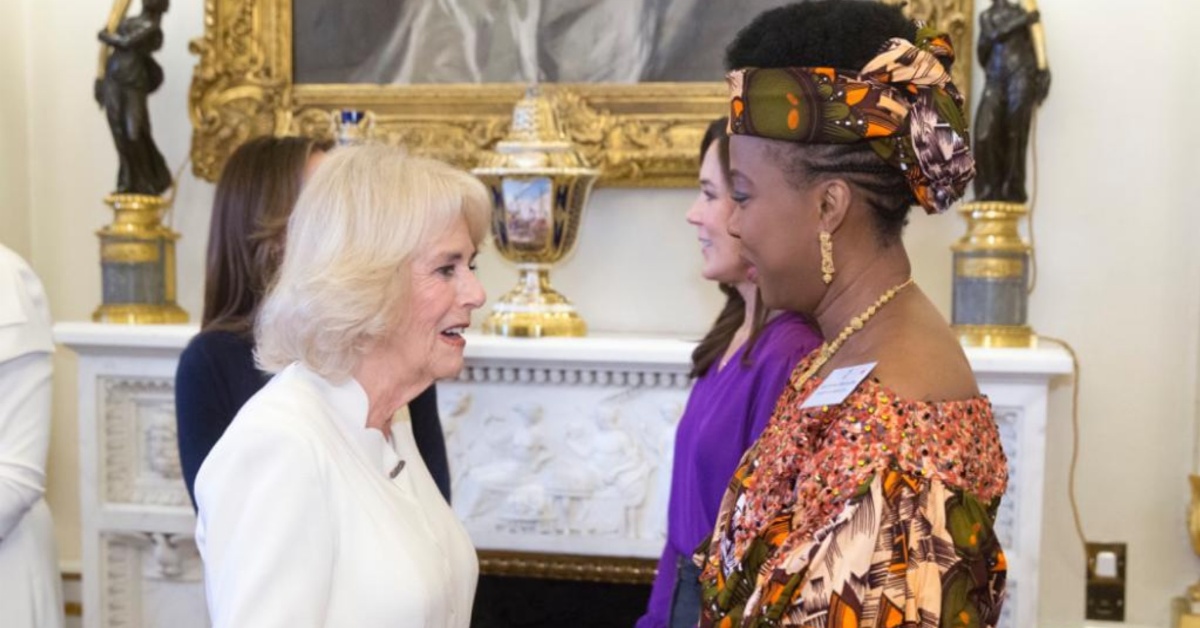Sierra Leone First Lady, Fatima Bio has today, Tuesday 29 November 2022 been welcomed at Buckingham Palace by Her Majesty The Queen Consort Camilla, as they joined forces to end violence against women.
Fatima Bio who is globally recognised for her work on protection of Women and Girls, was invited to join the British Queen Consort at Buckingham Palace in marking the ‘UNITE to End Violence against Women’ campaign.
The ‘UNITE to End Violence against Women’ campaign is an initiative of the UN-supported “16 Days of Activism against Gender-Based Violence”. The 16-Days activism is an annual campaign that begins on 25 November, the International Day for the Elimination of Violence against Women, and runs through to the International Human Rights Day on 10 December.
First Lady, Fatima Bio and three Queens, a Princess and a Countess joined forces on Tuesday to call for the end of the “heinous crime” of violence against women.
Shown in the picture above are Sierra Leone First Lady Fatima Bio (the only first lady from Africa) along with Her Majesty Queen Camilla, Her Majesty Queen Mathilde of the Belgium, Her Majesty Queen Rania Al Abdullah of Jordan, HRH the Crown Princess Mary of Denmark, HRH the Grand Duchess Maria Teresa of Luxembourg and First Lady of Ukraine.
The Telegraph reported that the royal show of force at Buckingham Palace saw the Queen Consort make her first major speech in her new position, asking assembled guests to use the “precious opportunity to speak up and galvanise action” to halt rape and domestic abuse.
The reception, held as part of the UN’s “16 days of activism against gender-based violence”, included around 300 guests – campaigners, politicians and celebrity ambassadors – to draw attention to the ongoing crisis.
The Queen Consort has made domestic violence one of her key campaigning issues since joining the Royal family, and chose the topic for her first major speech since the death of Queen Elizabeth.
“We are uniting today to confront, rightly, what has rightly been called a global pandemic of violence against women,” she said.
“Faced with such challenges, it can be hard to know what practical steps we can take to even begin to make a difference.
“Over the years, in my previous role, I had the privilege of meeting many survivors of rape and domestic abuse; and of sharing in the sorrow of people who had lost family members to violence.
“And again and again, I heard that two of the most powerful ways in which to help were to remember and to listen.”
Listing a small selection of women who have been killed “at the hands of a stranger, or of the person who should have loved them best”, she said: “We refuse to be desensitised by cold facts and figures and we resolve to keep the names and the memories of these women alive.”
She continued: “I have learnt from my conversations with these brave survivors that what they want, above all, is to be listened to and believed, to prevent the same thing happening to others.
“They know there is power in their stories and that, in the telling, they move from being the victims of their histories to the authors of their own futures.
“I have heard countless examples of the ways in which victims have become victors, using their experiences to hold out a hand to help others escape abuse.”



 Post a comment
Post a comment










Comment(s)
Disclaimer: Comments expressed here do not reflect the opinions of Sierraloaded or any employee thereof.
Be the first to comment